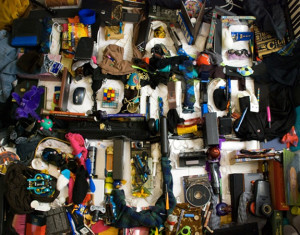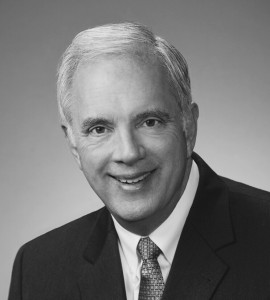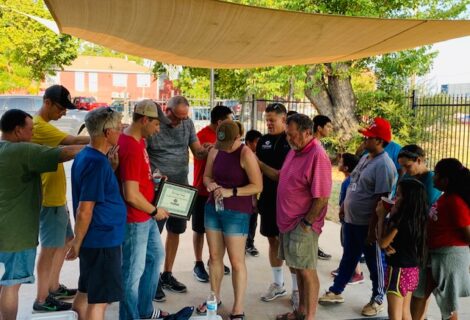Advent Conspiracy – Spend Less – Week 2
 One of my favorite Nyanja words is “Katundu,” which roughly translated means “stuff.” Recently, I was reminded of just how much stuff we have. We moved about 4 years ago and got rid of a lot of katundu, but katundu has a way of multiplying. I’m embarrassed by the amount of stuff that is now stuffed into our home. As an example, we had 24 coffee mugs. Why do 2 people need 24 coffee mugs? Many Africans can put all of their katundu in one suitcase. I could fill up a suitcase with just my coffee items! During this season of Advent, my wife and I are convicted to purge our lives of stuff and intentionally spend less. In this process, we are learning (and relearning) some important lessons.
One of my favorite Nyanja words is “Katundu,” which roughly translated means “stuff.” Recently, I was reminded of just how much stuff we have. We moved about 4 years ago and got rid of a lot of katundu, but katundu has a way of multiplying. I’m embarrassed by the amount of stuff that is now stuffed into our home. As an example, we had 24 coffee mugs. Why do 2 people need 24 coffee mugs? Many Africans can put all of their katundu in one suitcase. I could fill up a suitcase with just my coffee items! During this season of Advent, my wife and I are convicted to purge our lives of stuff and intentionally spend less. In this process, we are learning (and relearning) some important lessons.
1. Having stuff can rob you of joy. Seeking happiness through accumulation of materials goods, relationships, or self-development is doomed for failure. We falsely think that everything will be perfect if we just had _________. Joy doesn’t come from adding another piece to ourselves, but from surrendering our ideas of perfection and learning to be content with what we have.
2. Stuff creates stress. Less stuff = less stress. Imagine the amount of time spent in shopping for a purchase, finding a place to put it, maintaining it, insuring it, fixing it, and finally disposing of it. Our office shelves were crammed with stuff that we said, “We may need that some day.” We were experiencing claustrophobia, stress, and anxiety from the sheer amount on non-essential items around us and things that required our attention.
3. Less is liberating. Jesus was asked by a rich young man what he must do in order inherit eternal life. We read the encounter in Mark 10:17 (NIV):
“Looking at him, Jesus felt a love for him and said to him, “One thing you lack: go and sell all you possess and give to the poor, and you will have treasure in heaven; and come, follow Me.” But at these words he was saddened, and he went away grieving, for he was one who owned much property.”
You may be worried that in order to be a Christian you must sell everything you own and become a missionary. A full and careful reading of Scripture reveals that Jesus asked only a few specific people to leave everything behind and follow him. I believe in the case of the rich young man, his hurdle to an abundant life was not that he was rich and owned many possessions, but that his possessions owned him. His possessions held him captive. His way to freedom was simplifying his life.
The best way to practice the spiritual discipline of simplicity, begins with purchases. Ask yourself the following questions:
1. Why am I buying this item? Am I buying it because I am bored? Am I buying it strengthen my identity or social status? Really wrestle with these questions.
2. Is it useful? Will this purchase give me more time for the things that matter most, such as relationships with family and friends? Spending less doesn’t mean end all spending. Make sure you are buying with for a purposeful reason.
3. Can I enjoy and admire the beauty of this thing without having to purchase it? Just because you find a dress or a new car attractive, doesn’t mean you have to buy it.
4. Resist the temptation to spend. One week we received over 20 catalogs in the mail. Add on top of that the hundreds of commercials urging us to spend, spend, and spend. Pitch the catalogs in the trash, or better yet, unsubscribe from them. Record your favorite TV so you can fast forward through the commercials.
5. Can I rent or borrow it instead of owning it? My garage is full of “one-time tools.” I bought a specific tool for one repair that I never used again. Consider alternatives before spending your money.
Henry David Thoreau wrote, “The price of anything is the amount of life you exchange for it.” When we are good stewards, we have more time, energy, and resources to invest in relationships. We are liberated from accumulation. Spend less this Advent and experience the Coming of Christ, anew.
Dr. Daryl Eldridge is President and Cofounder of Rockbridge Seminary, a fully online school that allows students to receive leadership training without leaving their ministry field. Rockbridge Seminary is an accredited online seminary offering Masters and Doctoral level degrees. You can learn more about Rockbridge at their website: http://www.rockbridge.edu



























